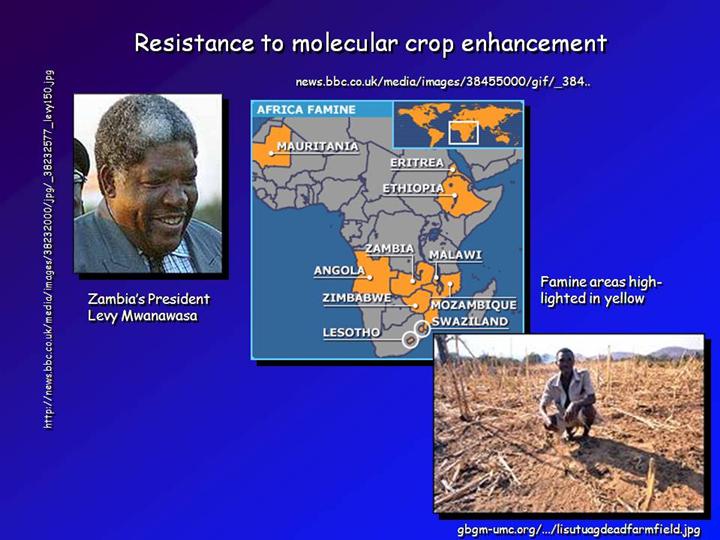| front |1 |2 |3 |4 |5 |6 |7 |8 |9 |10 |11 |12 |13 |14 |15 |16 |17 |18 |review |
 |
For example, with drought in Zambia creating a dire need for international food aid in 2002, Zambia’s president Levy Mwanawasa refused corn from the U. S. because it might be genetically modified, asserting that the risk of starvation was preferable to the risk of toxicity. But as Paarlberg describes in his book, the reasons were actually quite different. He relates that Agriflora, a private company in Lusaka, Zambia that produces vegetables for export to the UK received phone calls from UK supermarkets that their exports of organic baby corn would be in jeopardy if food aid shipments containing GM maize were allowed into Zambia. Agriflora and other export-oriented growers asked President Mwanawasa to reject the food aid. He did. (Paarlberg, p 136). This is a dramatic story, but not a unique one. Today, there is still only one country in Sub-Saharan Africa that grows GM crops on a commercial scale.
http://news.bbc.co.uk/media/images/3823 2000/jpg/_38232577_levy150.jpg news.bbc.co.uk/media/images/38455000/gif/_384.. gbgm-umc.org/.../lisutuagdeadfarmfield.jpg |